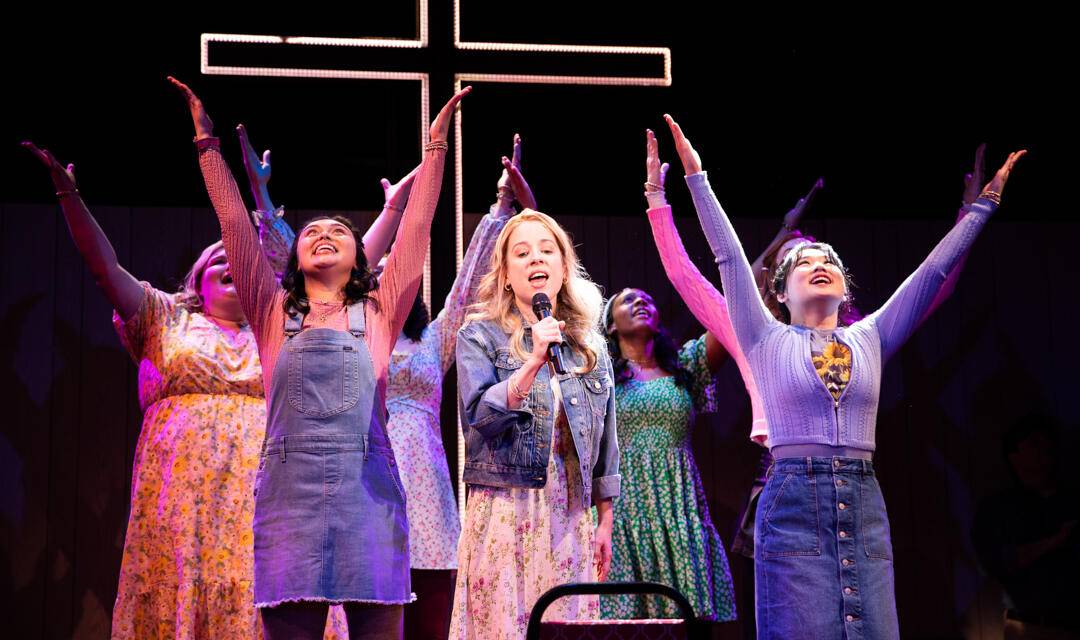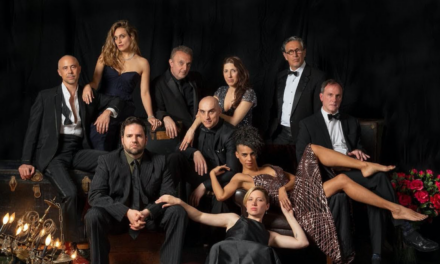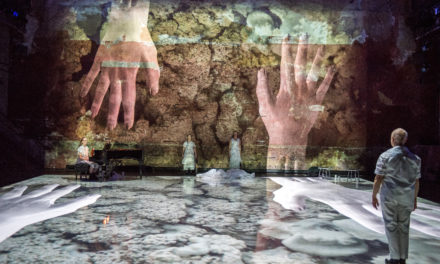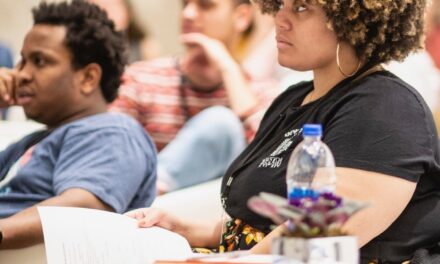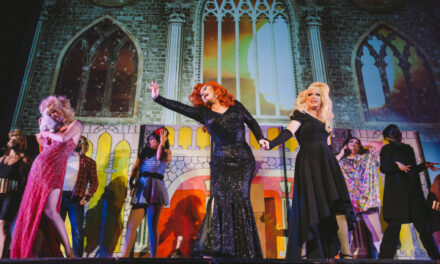Last year I went to the dentist for a toothache and was told that somehow, to my extreme disbelief, my tooth had grown another tooth in it. Well, my dens in dente is nothing compared to Dawn’s vagina dentata in Michael R. Jackson and Anna K. Jacob’s musical Teeth (based on Mitchell Lichtenstein’s 2007 horror film of the same name) directed by Sarah Benson and currently having its world premiere at Playwrights Horizons.
The show is a delightfully off-kilter examination of repression, shame, desire, and misogyny in New Testament Village where the oppressive purity culture has everyone suffering, but especially evangelical it-girl Dawn who’s about to discover her vagina’s ready to bite back. These front bottom fangs emerge only when Dawn’s boundaries are crossed meaning the show functions most successfully as a revenge fantasy, but leaves some of its richer questions (and characters) a bit underdeveloped. That said, when it’s on it’s ON and, much like an NTV teen struggling to obey Father God and protect their precious gift, it is frequently turned on.
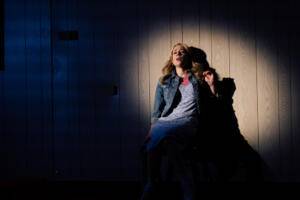
Alyse Alan Louis. PC: Chelcie Parry.
It’s fitting that a show about the complicated ordeal of having a body should have such an embodied performance at its center. As Dawn, Alyse Alan Louis’s trembling physicality is riveting from the moment she starts her beautifully awkward church lurch dancing in “Precious Gift” to grinding on the church floor in shameful lust to later grinding on, well, not the floor. She’s a stellar ring leader for the cohesively campy Promise Keeper Girls (Courtney Basset, Phoenix Best, Jenna Rose Husli, Lexi Rhoades, Wren Rivera, and Helen J Shen) who shine as sirens of the dentata driven doomsday. The corporal core is also brought out through Raja Feather Kelly’s expressive choreography.
As gloriously gory as the bloodbath becomes (and it is glorious not to mention full of tricks from scenic designer Adam Rigg and props designer Matt Carlin) I can’t help but hunger for more from writers as intelligent as Jackson and Jacobs. Playwrights’ Associate Artistic Director Natasha Sinha writes in a supplemental essay, On Community, On Choice “ultimately, if female power simply emulates male power, has anything meaningfully changed? Or is it just a role reversal?” It’s a fair question, but is it the most interesting one? Can this whole juicy show be reduced to essentially a cautionary tale about the dangers of power and the inevitability of violence to lead to more violence? I have other questions in mind: Is a healthy relationship to sexuality possible for Dawn? Is it for anyone? If so (and I sure hope so), how could she get there? What is “female power” and what could it be? What does any of this mean once you start breaking down binary gender entirely?
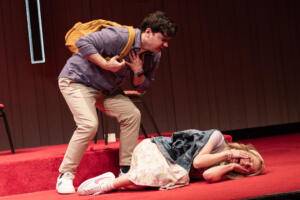
Jared Loftin, Alyse Alan Louis. PC: Chelcie Parry.
Of course a good piece of theater should raise more questions than answers. As artistic director Adam Greenfield puts it in another supplemental essay “The question is the point.” But Dawn’s last minute implicating turn to the audience (a move used more successfully in Jackson’s piece White Girl in Danger) feels more like a self-satisfied gotcha than a moment of curiosity and potential.
After all, the closest we get to seeing Dawn experience sexual pleasure is when she hooks up with her gay best friend (Jared Loftin), but that is quickly and sharply undercut. That and there’s a certain indulgent pleasure in dismemberment but that can hardly be described as pleasure in sex itself. So maybe the closest we get to seeing Dawn experience sexual pleasure is between her and the church floor carpet.
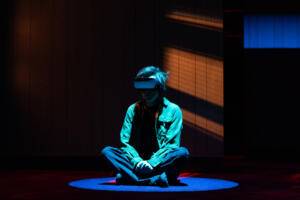
Will Connolly. PC: Chelcie Parry.
And what about the male characters? Admirably the show does gesture to the ways they too suffer under the patriarchy but Brad (Will Connolly) and the other Truth Seeker Boys verge too much on caricature to miss when they’re eventually lost in the wash of lower lips apocalypse.
As a fun time with catchy tunes and spectacle to spare, this show is a full meal, but as something deeper I wanted more to sink my teeth into.
This post was written by the author in their personal capacity.The opinions expressed in this article are the author’s own and do not reflect the view of The Theatre Times, their staff or collaborators.
This post was written by Morgan Skolnik.
The views expressed here belong to the author and do not necessarily reflect our views and opinions.

